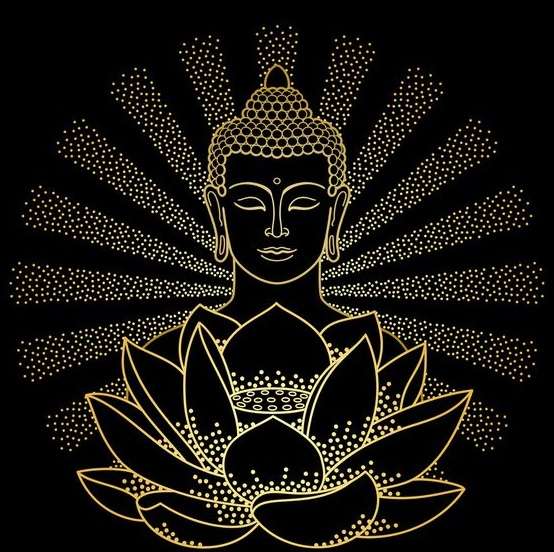| General Poetry posted November 4, 2023 | Chapters: |
...64 65 -66- 67... 
|
      |
Gogyohka Poem
A chapter in the book 2023 Gypsy's Tanka
Life After Death
by Gypsy Blue Rose

monk basks in the sun
contemplating the meaning of life after death— the sun sets at night
and rises the following day  |
The traditional art of writing haiku started with Buddhist monks in Japan and has now spread all over the world. The spiritual art form emphasizes being in the moment, with the shortness of the poem is a reflection of Zen Buddhist philosophy.
"Death is as important as being born because birth and death are interrelated. Without birth, there's no death. Without death, there's no birth. So do not be afraid of death. Death is just a continuation, and so is birth." - Thich Nhat Hanh
Thich Nhat Hanh was a Vietnamese Buddhist monk, peace activist, prolific author, poet, and teacher. click here if you want to know more about Thich Nhat Hanh
Gogyohka is a five-line free-style Japanese poetic form with no strict rules on syllable count but as brief as possible. Any theme. Lines are grammatically connected. Alliteration, personification, and metaphor are okay but never rhyme. Japanese poets have written gogyohka since the 1910s. However, they did not name the form until 1983 by poet Enta Kusakabe. === source = writers digest ===source=wikipedia
Thank you for taking the time to read and review my poem.
Gypsy
pictures from pinterest
Pays
one point
and 2 member cents. "Death is as important as being born because birth and death are interrelated. Without birth, there's no death. Without death, there's no birth. So do not be afraid of death. Death is just a continuation, and so is birth." - Thich Nhat Hanh
Thich Nhat Hanh was a Vietnamese Buddhist monk, peace activist, prolific author, poet, and teacher. click here if you want to know more about Thich Nhat Hanh
Gogyohka is a five-line free-style Japanese poetic form with no strict rules on syllable count but as brief as possible. Any theme. Lines are grammatically connected. Alliteration, personification, and metaphor are okay but never rhyme. Japanese poets have written gogyohka since the 1910s. However, they did not name the form until 1983 by poet Enta Kusakabe. === source = writers digest ===source=wikipedia
Thank you for taking the time to read and review my poem.
Gypsy
pictures from pinterest

You need to login or register to write reviews. It's quick! We only ask four questions to new members.
© Copyright 2025. Gypsy Blue Rose All rights reserved. Registered copyright with FanStory.

Gypsy Blue Rose has granted FanStory.com, its affiliates and its syndicates non-exclusive rights to display this work.

